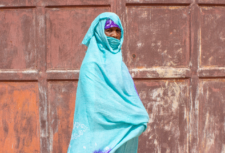Disclaimer: This article is more than 8 years old, and may not include the most up-to-date information or statistics. Please verify information with more recent sources as needed, and if you have any questions contact our Press Office.
8 September 2015
Press release
As the annual cotton harvest in Uzbekistan started last week with renewed concerns that government sponsored system of forced labour will continue this year, Anti-Slavery International has released a two minute animated video explaining the issue.
The slavery system has been used grow and pick cotton for many years and that is a major source of income for a small elite of those in power.
Hundreds of thousands of people, including children, are forced out of their regular jobs and schools and sent to the cotton fields to toil for weeks in arduous and hazardous conditions, with cases of people dying in fields from extreme heat and accidents.
Farmers are forced to fulfil cotton growing quota, businesses of all sizes are forced to contribute financially to the harvest, and massive bribes are extorted from citizens by corrupt officials. Public services such as education and health care are severely affected during the harvest.
Those who refuse to participate face punishment, and activists trying to monitor the situation are routinely harassed and abused by the authorities.
Uzbek cotton ends up in global supply chains and high street shops all over the world in spite of many businesses pledging not to knowingly use Uzbek cotton. Many governments, including British, actively promote trade with Uzbekistan.
“If you think that forced labour in Uzbekistan doesn’t affect you, think again. It is likely that whilst reading this you is wearing a piece of garment made with Uzbek cotton” said Klara Skrivankova, Anti-Slavery International’s Europe Programme and Advocacy Co-ordinator.
“Slavery in Uzbekistan gets less international attention because human rights abuses in other parts of the world happen to be more spectacular and happen in countries with more established links to the Western world, such as India or Thailand.
“But what’s happening in Uzbekistan deserves as much attention as the forced labour system has been sanctioned by the government. Last year hundreds of thousands of people were forced to toil in the fields and it is very likely that this will happen this year again. Forced labour is one of the atrocities committed by this extremely oppressive regime.”
“Most importantly, Uzbek slavery affects all of us. Most of its cotton is exported to Bangladesh and China, which in turn are major producers of clothing for the rest of the world.
“We are all likely to be wearing Uzbek cotton and people have the right to know how it has been produced. That’s why we made this video”.
Note to editors:
Anti-Slavery International, oldest international human rights organisation in the world, works to end modern slavery in all its forms across the world. Anti-Slavery work in coalition with Cotton Campaign, working to end the system of forced labour in Uzbekistan’s cotton industry. For more information and to arrange interviews please contact Anti-Slavery International Press Officer Jakub Sobik on 07789 936 383 or at j.sobik@antislavery.org.





